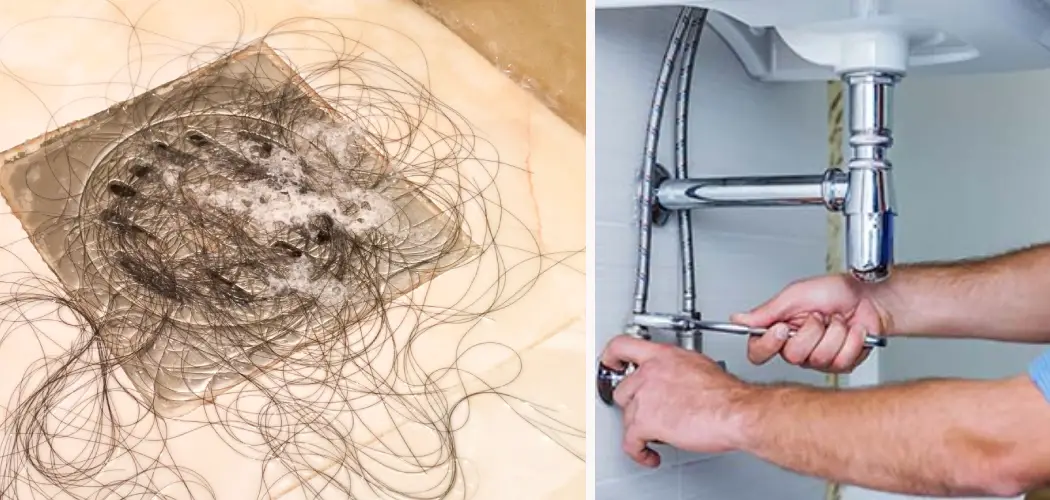Dealing with clogged pipes in the bathroom is a common household problem. Hair and soap scum can easily build up over time, causing water to drain slowly or not at all. This can be frustrating and inconvenient, but fortunately, there are ways to dissolve hair and soap scum in pipes effectively. In this guide on how to dissolve hair and soap scum in pipes, we will discuss various methods for unclogging your pipes and keeping them clear.
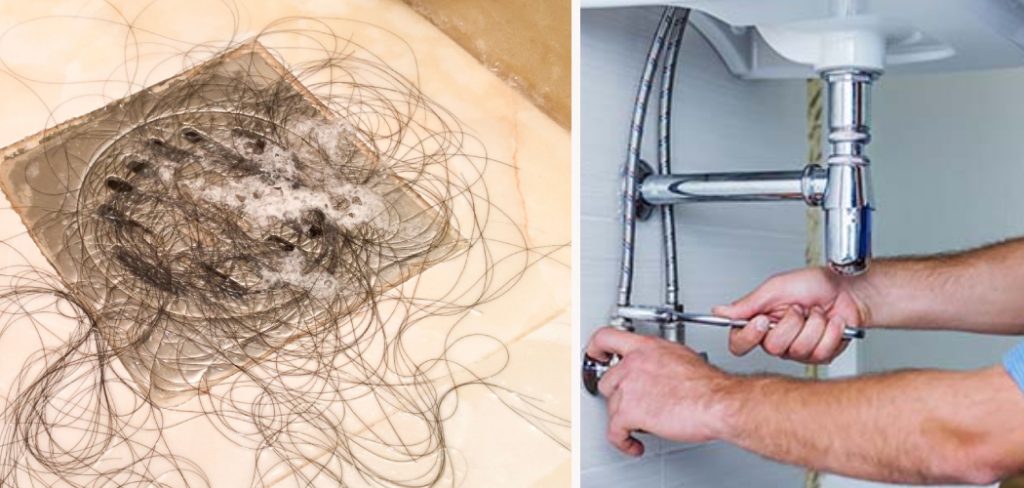
Necessary Items
Before we dive into the different methods for dissolving hair and soap scum in pipes, it is important to gather all the necessary items. Some of these may already be available in your household, while others may require a trip to the store.
- Plunger: This is a basic tool that can help dislodge small clogs.
- Drain Snake or Auger: This tool is used to physically remove hair and other debris from the pipe.
- Baking Soda and Vinegar: These household items can be combined to create a natural cleaning solution.
- Chemical Drain Cleaner: If the clog is severe, you may need to use a chemical drain cleaner. Make sure to choose one that is safe for your pipes and follow the instructions carefully.
8 Things to Know Before You Start
1)Why Does Hair and Soap Scum Clog Pipes?
Hair and soap are the main culprits for clogged bathroom pipes. When showering or washing your hands, hair gets caught in the drain cover and can easily accumulate over time. Soap scum, on the other hand, is a byproduct of using soap and hard water. When soap mixes with minerals in hard water, it creates a sticky substance that can cling to the inside of pipes and trap hair, leading to clogs.
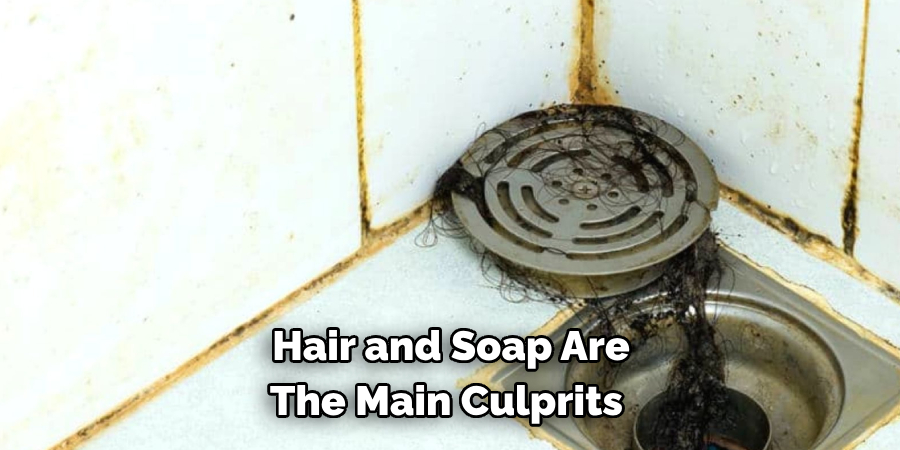
2) How to Prevent Clogs in the First Place
Prevention is always better than dealing with a clogged pipe. To avoid having hair and soap scum build up in your pipes, you can use a drain cover or strainer to catch hair before it goes down the drain. Regularly cleaning your drains by pouring hot water down them can also help prevent clogs.
3) When to Call a Professional
If you have tried multiple methods and the clog still persists, it may be time to call a professional plumber. They will have specialized tools and knowledge to handle tough clogs effectively and prevent any damage to your pipes.
4) Safety Precautions
It is important to take safety precautions when working with clogged pipes. Wear gloves to protect your hands and avoid using any harsh chemicals that can irritate your skin or eyes. If using a chemical drain cleaner, make sure to follow the instructions carefully and avoid mixing different types of cleaners.
5) How to Locate the Clog
Before attempting to dissolve hair and soap scum in your pipes, it is helpful to locate where the clog is. This will help determine which method will be most effective in removing it. You can use a plunger or drain snake to try and dislodge the clog and see if it is near the surface.
6) Time and Effort Required
Removing a clog from your pipes can be a time-consuming process, depending on the severity of the clog. It may also require multiple attempts with different methods before being successful. Be patient and persistent in your efforts.
7) Environmental Impact
Chemical drain cleaners can be harmful to the environment, especially if they contain harsh ingredients. Consider using natural methods first before resorting to chemical cleaners or look for eco-friendly options.
8) Regular Maintenance
To prevent future clogs, it is important to regularly maintain your pipes by cleaning them and being mindful of what goes down the drain. This will save you time and effort in the long run.
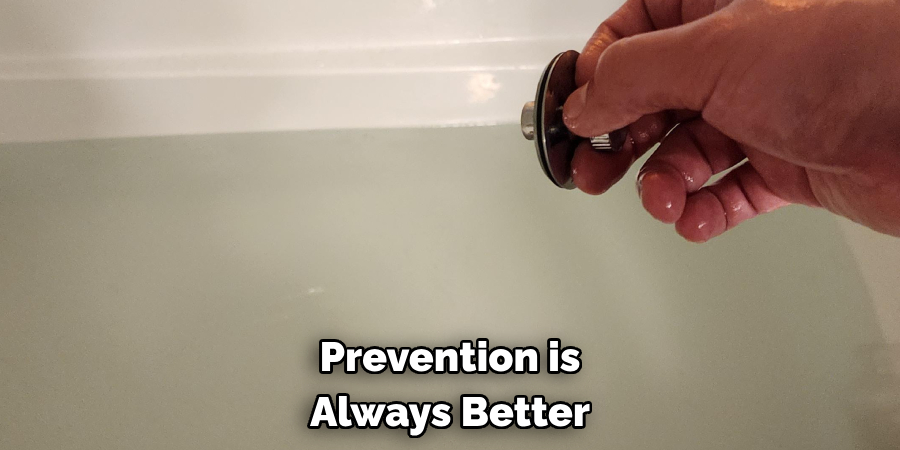
12 Methods on How to Dissolve Hair and Soap Scum in Pipes
1) Plunger Method
This method is best for minor clogs near the surface. Start by filling your sink or tub with a few inches of water and then place the plunger over the drain, making sure to cover it completely. Push down and pull up on the plunger in rapid motion, creating suction. Repeat this a few times until the water starts to drain.
2) Drain Snake Method
A drain snake or auger is a long, flexible tool that can reach deep into pipes to remove clogs. Insert the end of the snake into the drain and turn the handle clockwise to extend it further down. Once you feel resistance, rotate the snake back and forth while pushing it in and pulling it out to break up the clog. You can then pull the snake out and remove any hair or debris caught on it.
3) Baking Soda and Vinegar Method
This natural cleaning method is effective in dissolving hair and soap scum. Start by pouring half a cup of baking soda down the drain, followed by one cup of vinegar. Let the mixture sit for about 30 minutes, then pour hot water down the drain to flush it out.
4) Hot Water Method
Boiling a pot of water and pouring it down your drain can help loosen up and dissolve hair and soap scum. This method is best for minor clogs near the surface. If the clog is deeper in the pipes, you may need to use another method in combination with hot water.
5) Plumber’s Snake Method
Similar to a drain snake, a plumber’s snake is a longer and sturdier tool that can reach deeper into your pipes. You can purchase one at a hardware store or rent one from a rental shop. Follow the same steps as you would with a regular drain snake.
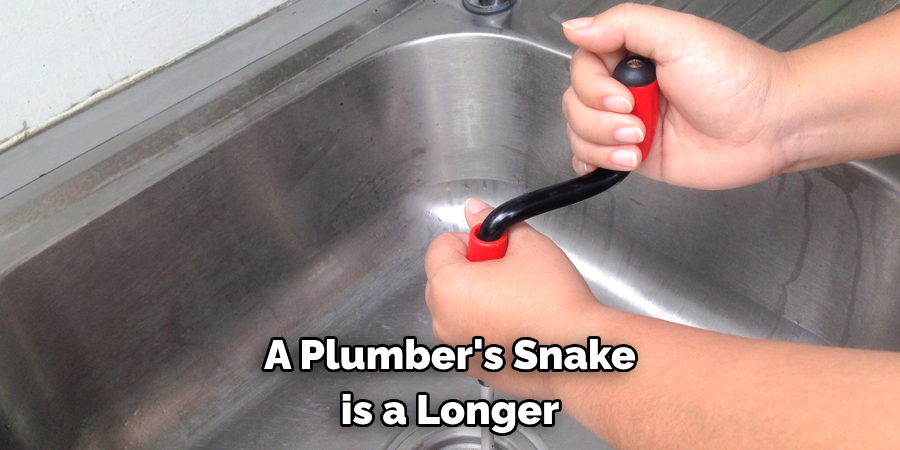
6) Bent Wire Hanger Method
If you do not have a drain snake, you can use a wire hanger to create a makeshift one. Straighten out the hanger and then bend one end into a small hook shape. Insert it into the drain and gently move it around to break up and remove any hair and debris.
7) Dish Soap Method
This method can be used in combination with other methods to help loosen up clogs. Start by pouring a few tablespoons of dish soap down the drain, followed by hot water. Let it sit for about 15 minutes before attempting to remove the clog with another method.
8) Wet/Dry Vacuum Method
If you have a wet/dry vacuum, you can use it to suck out the clog from your drain. Make sure to remove any attachments and cover the end of the hose with a cloth before inserting it into the drain. Turn on the vacuum and let it run for a few minutes.
9) Enzyme-based Cleaner Method
Enzyme-based cleaners are a more natural alternative to chemical drain cleaners. They contain bacteria and enzymes that break down organic material, such as hair and soap scum, without harming your pipes or the environment. Follow the instructions on the cleaner carefully.
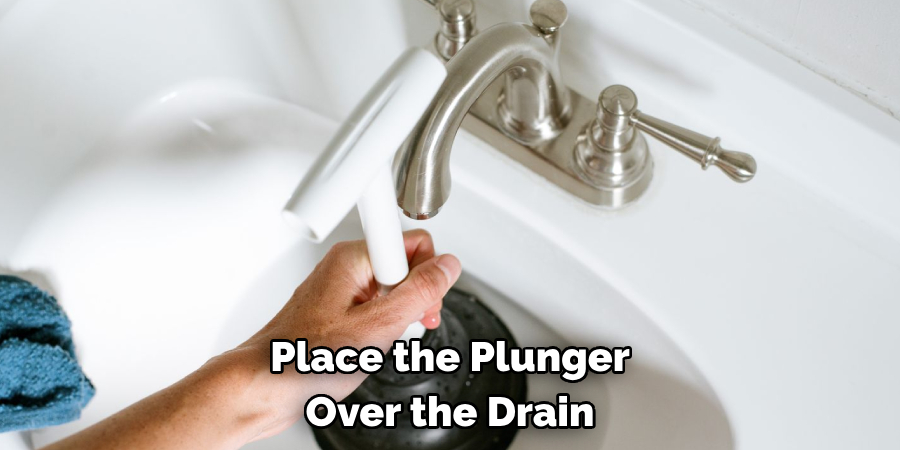
10) Caustic Soda Method
Caustic soda, also known as sodium hydroxide, is a chemical that can dissolve hair and other organic materials. It is important to use caution when handling it, as it can irritate the skin and eyes. Follow the instructions on the package carefully.
11) Hydrogen Peroxide Method
Hydrogen peroxide can also be used to dissolve hair and soap scum in your pipes. Mix equal parts of hydrogen peroxide and water and pour it down the drain. Let it sit for about 15 minutes before flushing it out with hot water.
12) Professional Plumbing Method
If all else fails, it may be time to call a professional plumber. They have specialized tools and knowledge to effectively remove tough clogs from your pipes without causing damage. This can save you time and effort in the long run.
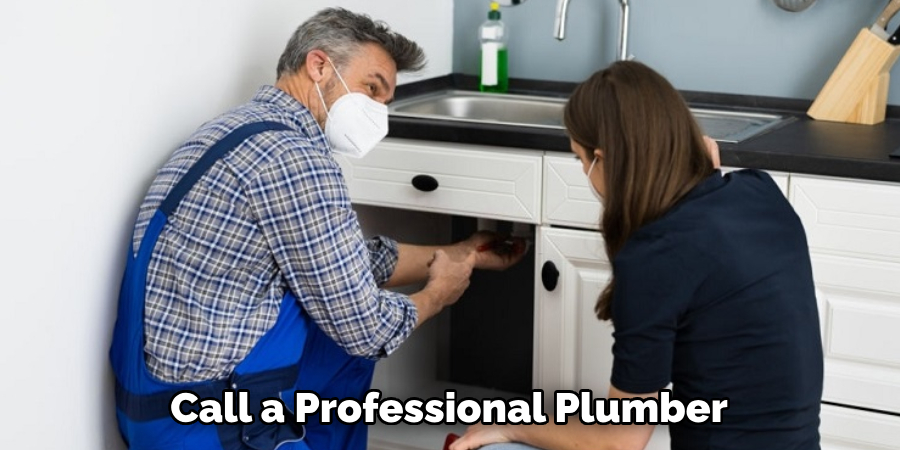
Clogged pipes can be a nuisance, but with the right methods on how to dissolve hair and soap scum in pipes and precautions, they can be easily resolved. Remember to always wear protective gear and use caution when working with any chemicals. Regular maintenance is key in preventing future clogs, and being mindful of what goes down your drain can also go a long way.
8 Things to Avoid Putting Down Your Drain
1) Grease and Oil
Grease and oil may seem harmless when poured down the drain, but they can harden and stick to the inside of pipes, causing clogs. Instead, let them cool and solidify before disposing of them in the garbage.
2) Coffee Grounds
Coffee grounds do not break down easily and can build up in your pipes over time. Dispose of them in the garbage or use them as compost. If you have a garbage disposal, make sure to run cold water while disposing of coffee grounds.
3) Eggshells
Eggshells are another item that should not go down your drain. They can stick to the inside of pipes and create blockages. Dispose of them in the garbage or use them as compost. While eggshells can help clean your disposal, they should not be disposed of down the drain.
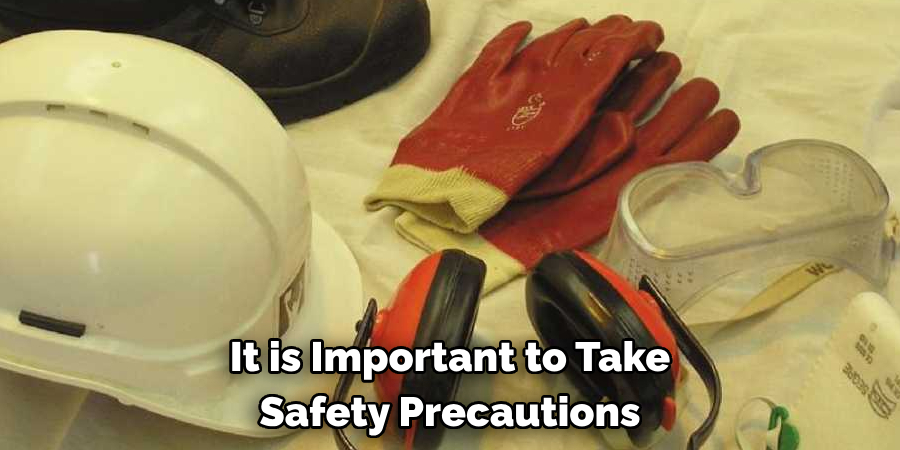
4) Pasta and Rice
Pasta and rice can expand when exposed to water, causing them to clog up your pipes. Make sure to dispose of them in the garbage or use a strainer to catch any leftovers before they go down the drain.
5) Flushable Wipes
Despite their name, flushable wipes do not break down easily and can cause major clogs in your pipes. It is best to dispose of them in the garbage instead. While toilet paper is designed to disintegrate in water, flushable wipes are not.
6) Q-Tips and Cotton Balls
Q-tips and cotton balls may seem small enough to go down your drain, but they can cause blockages if flushed. Dispose of them in the garbage instead. And remember, even if a product says it is flushable, it is always best to dispose of it in the trash.
7) Paper Towels
Paper towels are designed to be durable and do not break down easily in water. They can cause clogs if flushed down the drain. Dispose of them in the garbage instead. However, if you do use paper towels for cleaning, make sure to dispose of them in the trash and not down the drain.
8) Chemicals
Chemicals, such as paint or motor oil, should never be disposed of down your drain. They can pollute water sources and harm the environment. Instead, take them to a designated facility for proper disposal. This also applies to leftover medication, which should be taken to a pharmacy for proper disposal as well.
In addition to avoiding these items in your drains, it is important to regularly maintain and clean them. This includes using a drain strainer to catch any large debris, running hot water down your drains after each use, and periodically pouring vinegar and baking soda down the drain, followed by hot water to help prevent build-up. With these precautions and methods, you can keep your pipes clean and clog-free. So, it is important to be mindful of what goes down your drain to avoid any potential plumbing issues in the future.
8 Additional Tips for Maintaining a Healthy Drain
1) Use a Plunger Regularly
Using a plunger regularly can help prevent clogs and keep your pipes clean. This is especially important for sinks and showers that are used frequently. If you do encounter a clog, using a plunger can help loosen it up and prevent it from getting worse.
2) Use Hot Water
Hot water can help dissolve any built-up residue in your pipes and keep them clean. Run hot water down your drains after each use to help prevent future clogs. But be careful not to use boiling water, as it can damage certain types of pipes.
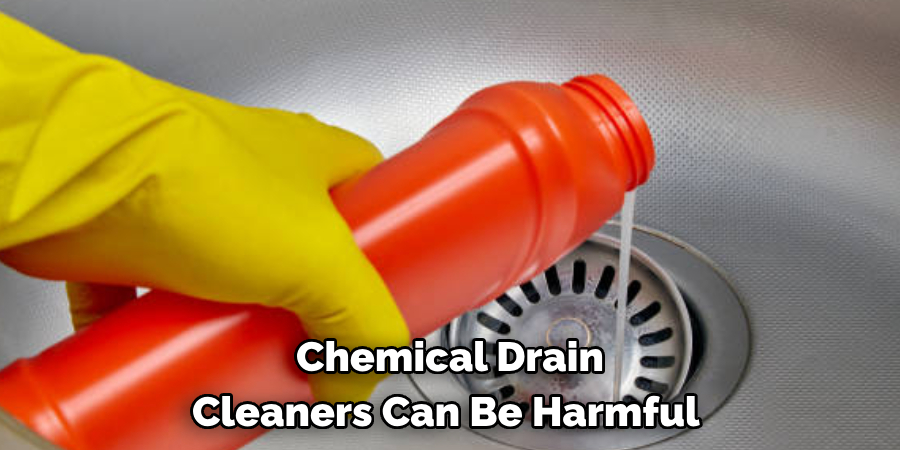
3) Don’t Overuse Chemical Cleaners
While chemical cleaners may seem like an easy solution for clogs, they can actually do more harm than good. Overusing them can damage your pipes and the environment. It is best to try natural methods first and only use chemical cleaners as a last resort.
4) Install Drain Screens
Drain screens or strainers can help catch any large debris before it goes down your drains. This can prevent potential clogs and also make cleaning your drains easier. Never underestimate the power of a simple drain screen.
5) Avoid Plant Debris
If you have outdoor drains, make sure to keep them clear of any plant debris. Leaves and branches can easily cause clogs and prevent proper drainage. Regularly clean out your gutters, and make sure to trim any plants near your outdoor drains.
6) Don’t Pour Hot Oil Down the Drain
Hot oil can cause major clogs in your pipes, so it is important to properly dispose of it in a sealable container or allow it to cool and then scrape it into the garbage. Pouring hot oil down the drain can also be a fire hazard.
7) Regularly Inspect Your Pipes
Regularly inspecting your pipes for any signs of damage or wear can prevent major plumbing issues in the future. Look for leaks, cracks, or any unusual sounds coming from your pipes. It is also a good idea to have a professional plumber inspect your pipes annually.
8) Know Your Plumbing System
It is important to know the layout and condition of your plumbing system. This includes knowing the location of shut-off valves and clean-out points in case of a plumbing emergency. If you are unsure, consult a professional plumber for assistance.
By following these tips on how to dissolve hair and soap scum in pipes and being mindful of what goes down your drain, you can maintain a healthy plumbing system and avoid costly repairs. Remember, prevention is key when it comes to keeping your drains clog-free. So be proactive and take care of your pipes to keep them in top shape. Keep these tips in mind, and your plumbing system will thank you!
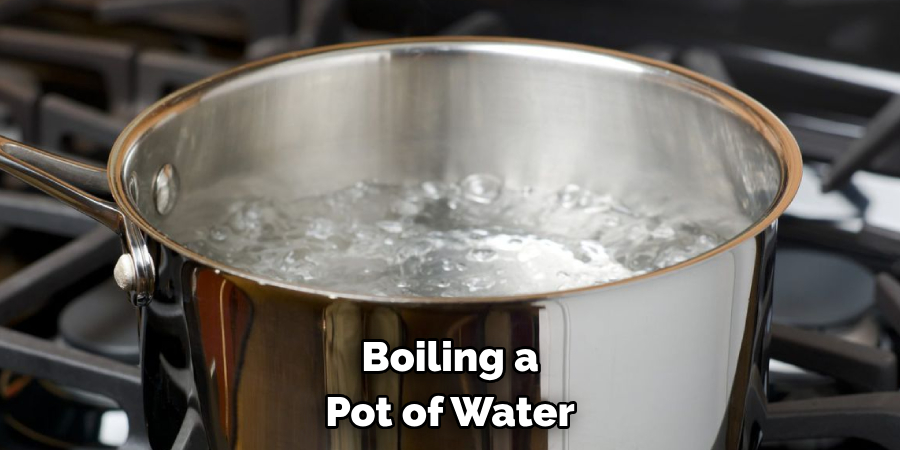
Frequently Asked Questions
Can I Pour Hot Water Down My Drains to Clean Them?
Yes, hot water can help dissolve any built-up residue in your pipes and keep them clean. However, be careful not to use boiling water as it can damage certain types of pipes.
Is It OK to Use Chemical Cleaners for Clogs?
It is best to try natural methods first and only use chemical cleaners as a last resort. Overusing chemical cleaners can damage your pipes and the environment. If you do choose to use a chemical cleaner, make sure to follow the instructions carefully.
Are There Any Other Items I Shouldn’t Flush Down My Toilet?
Yes, in addition to flushable wipes, Q-tips, and cotton balls, you should also avoid flushing feminine hygiene products, dental floss, and diapers down your toilet. These items can cause major clogs in your pipes. It is best to dispose of them in the garbage instead.
How Often Should I Have My Pipes Inspected by a Professional Plumber?
It is recommended to have your pipes inspected by a professional plumber annually. This can help catch any potential issues before they turn into major repairs. If you notice any signs of damage or unusual sounds coming from your pipes, it is also important to schedule an inspection as soon as possible. Remember, regular maintenance can save you time and money in the long run. So make sure to prioritize the health of your plumbing system.
What Should I Do If I Encounter a Major Clog?
If you encounter a major clog, it is best to call a professional plumber for assistance. Trying to clear the clog yourself can potentially cause more damage and may require costly repairs in the future. A professional plumber has the necessary tools and expertise to safely and effectively clear the clog. Additionally, they can also inspect your pipes for any potential damage or issues. So don’t hesitate to call a professional in case of a major clog.
Is It OK to Dispose of Medication Down My Drain?
No, it is not recommended to dispose of medication down your drain as it can contaminate the water supply. Instead, check with your local pharmacy or government for proper medication disposal methods in your area. By properly disposing of medications, you can help protect the environment and prevent potential harm to others.
Conclusion
Maintaining a healthy drain is essential for the overall health of your plumbing system. By following these additional tips and being mindful of what goes down your drains, you can prevent clogs and costly repairs in the future. By following these additional tips on how to dissolve hair and soap scum in pipes, you can ensure that your drains and plumbing system stay in top shape.
Remember to use a plunger regularly, avoid overusing chemical cleaners, and properly dispose of hot oil and medication. By being proactive and knowing your plumbing system, you can prevent major clogs and expensive repairs. So, take care of your drains to keep them healthy and clog-free! And don’t hesitate to contact a professional plumber if you encounter any issues that you are unsure how to handle. Your plumbing system will thank you for it.

